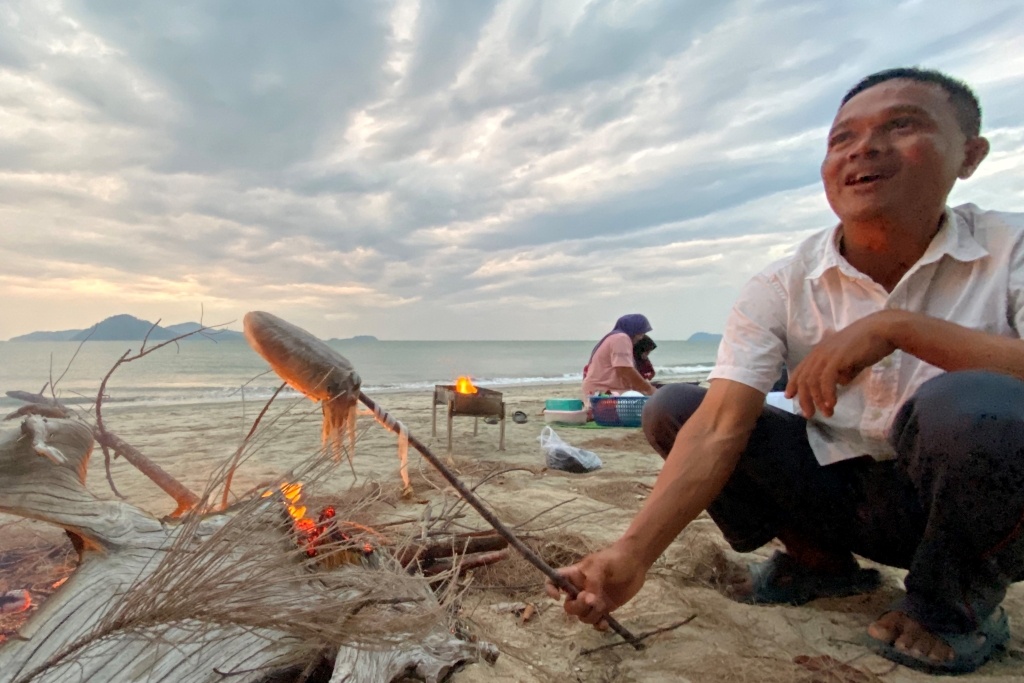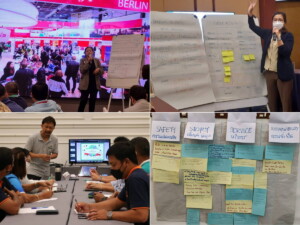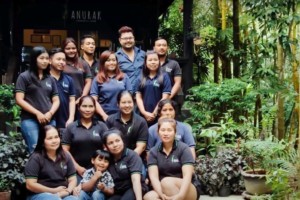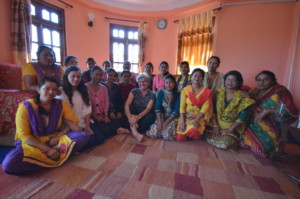Host communities are at the core of tomorrow’s sustainable tourism

The post-pandemic future of travel & tourism will be more community-based than it has been, according to sustainable tourism expert Eva Mossberg. In this “Good Tourism” Insight, Ms Mossberg points to the village of Baan Talae Nok in southern Thailand for an example of how and why.
“Humans are not perfect decision makers. Not only are we not perfect, but we depart from perfection or rationality in systematic and predictable ways.” (Bazerman, 2020).
When we are little, our decisions, both good and bad, are usually rewarded right away with carrots and sticks. As we mature into adulthood, carrots and sticks give way to a complex maze of decision making processes. We make choices based on information.
And herein lies a problem: Information, the lack thereof or its poor quality. For example, in a global survey conducted by Booking.com for their 2019 sustainable travel report, 72% of people in a survey said that sustainable tourism is very important to them; but in the same survey, only 50% said that they understood how to travel sustainably, and 37% of respondents had no idea how to make sustainable travel choices (Booking.com 2019). Due to specialisation and niche marketing it’s easy to see why it can be confusing.
Clear as mud: Defining sustainable tourism & community-based tourism
According to the UNWTO “Sustainable tourism development requires the informed participation of all relevant stakeholders, as well as strong political leadership to ensure wide participation and consensus building. Sustainable tourism should also maintain a high level of tourist satisfaction and ensure a meaningful experience to the tourists, raising their awareness about sustainability issues and promoting sustainable tourism practices amongst them” (n.d.). In today’s somewhat superfluous and oftentimes overlapping world of tourism definitions — nature-based tourism, ecotourism, voluntourism, etc — many, if not most, do in fact fall under the umbrella of sustainable tourism.
Community-based tourism (CBT), a sustainable option for communities all around the world, is built on the pillars of sustainable tourism with a particular focus on creating authentic connections between visitors and host communities.
Sustainable tourism in Thailand
In early 2020, our GLP Films crew travelled to the village of Baan Talae Nok on the Andaman Coast in southern Thailand to help bring to life their unique story of CBT. Working closely with the local community leaders and Andaman Discoveries, the result of this collaboration was the award-winning series Sustainable Thailand.
In response to the devastation following the 2004 tsunami, Baan Talae Nok chose community-based tourism in order to recover, rebuild, and provide supplemental income for families to send their kids to school.
When COVID-19 effectively halted travel globally in 2020, GLP Films followed up with Lindsey Reding of Andaman Discoveries for an interview as part of the #TourismStrong series, an uplifting video series celebrating the resiliency of the travel industry through positive tourism stories amidst the COVID-19 global pandemic. In the interview below she reported that while tourism has come to a stop for now, the Baan Talae Nok community is living sustainably off local resources and the mangroves as they always have.
When tourism restarts, Baan Talae Nok is poised to reopen with experiences that support people and the planet, bringing travellers closer to nature through safe and meaningful community-based tourism.
What the future holds: Travellers want sustainable and authentic experiences
Travellers are also catching on to sustainable travel and community-based tourism. According to Booking.com’s 2019 report on sustainable tourism:
- Sustainable experiences are sought-after with 68% of travellers wanting to see the money they spend go back into the local community.
- Authentic experiences are increasingly being sought, with almost three quarters (72%) of global travellers looking for experiences that reflect the native culture. Working with local hosts is integral to this, and recommending hidden gems that will both satisfy this interest while encouraging visitors away from areas already overburdened by tourism is a great way to engage in sustainable practices.
As we get ready to travel again, we owe it to ourselves, the triple bottom line, and future generations to understand our own limitations and seek out information that will allow us to make more wholesome choices and use travel as a force for good.
To learn more about the experiences available in Baan Talae Nok, and to create your own sustainable trip, check out GLP’s resources for sustainable tourism in Thailand. Also, if you know of similar stories on this topic, or have a story to tell, please email GLP Films.
What do you think? Share a short anecdote or comment below. Or write a deeper “GT” Insight. The “Good Tourism” Blog welcomes diversity of opinion and perspective about travel & tourism because travel & tourism is everyone’s business.
References
Bazerman, M. H. (2020). Judgment and decision making. In R. Biswas-Diener & E. Diener (Eds), Noba textbook series: Psychology. Champaign, IL: DEF publishers. Retrieved from http://noba.to/9xjyvc3a
Bookings.com (2019, April 17). Booking.com reveals key findings from its 2019 sustainable travel report. Retrieved from https://globalnews.booking.com/bookingcom-reveals-key-findings-from-its-2019-sustainable-travel-report
TEDxStockholmSalon (2019, Oct 2). Doug Lansky: How to save Tourism from itself. Retrieved from https://www.youtube.com/watch?v=Imbj0F-gUSw
UNWTO (n.d.) Sustainable Development. Retrieved Dec 8, 2020 from https://www.unwto.org/sustainable-development
UNWTO Global Report on Adventure Tourism (2014). Retrieved from https://skift.com/wp-content/uploads/2014/11/unwto-global-report-on-adventure-tourism.pdf
Featured image (top of post): Fresh squid over an open fire. “When tourism restarts, Baan Talae Nok is poised to reopen with experiences that support people and the planet, bringing travellers closer to nature through safe and meaningful community-based tourism.” Image supplied by GLP Films.
About the author

Eva Mossberg is a “leader, innovator, and adventuresome expert” in sustainable tourism. Her experience spans more than 20 years and includes all facets of domestic and international operations and logistics for various global educational tours and programs, from program development and risk management protocols to sourcing new destinations and strategic partnerships across Europe.
With undergraduate and graduate degrees in hospitality and tourism, Eva is currently involved in several initiatives and organisations, such as special advisor to GLP Films; strategic partnership and program manager with RISE Travel Institute; and founder & CEO of her own Experiential Expeditions. Eva is based north of Boston, Massachusetts, USA and loves anything and everything outdoors.





